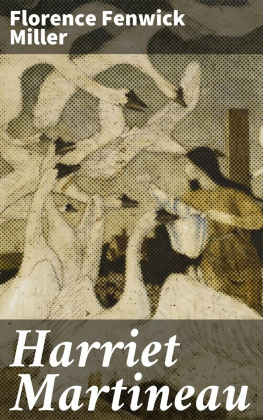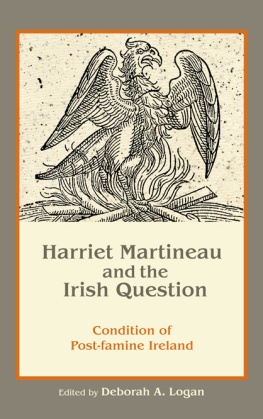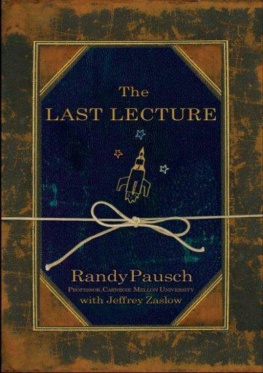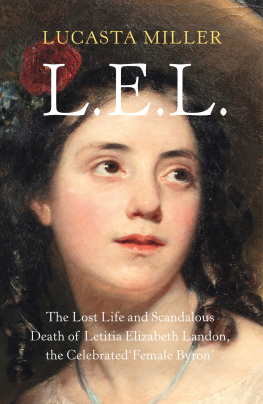CHAPTER I.
THE CHILD AT HOME AND AT SCHOOL.
When Louis XIV. of France revoked the Edict of Nantes, in 1688, a large number of the Protestants who were driven out of France by the impending persecutions came to seek refuge in this favored land of liberty of ours. Many who thus settled in our midst were amongst the most skillful and industrious workers, of various grades, that could have been found in the dominions of the persecuting king who drove them forth. They must have been, too, in the nature of the case, strong-hearted, clear in the comprehension of their principles, and truthful and conscientious about matters of opinion; for the cowardly, the weak, and the false could stay in their own land. From the good stock of these exiles for conscience-sake sprang Harriet Martineau.
Her paternal Huguenot ancestor was a surgeon, who was married to a fellow-countrywoman and co-religionist of the name of Pierre. This couple of exiles for freedom of opinion settled in Norwich, where the husband pursued his profession. Their descendants supplied a constant succession of highly-respected surgeons to the same town, without intermission, until the early part of this century, when the line of medical practitioners was closed by the death of Harriet Martineau's elder brother at less than thirty years old. The Martineau family thus long occupied a good professional position in the town of Norwich.
Harriet's father, however, was not a surgeon, but a manufacturer of stuffs, the very names of which are now strange in our earsbombazines and camlets. His wife was Elizabeth Rankin, the daughter of a sugar-refiner of Newcastle-on-Tyne. A true Northumbrian woman was Mrs. Martineau; with a strong sense of duty, but little warmth of temperament; with the faults of an imperious disposition, and its correlative virtues of self-reliance and strength of will. These qualities become abundantly apparent in her in the story of her relationship with her famous daughter. On both sides, therefore, Harriet Martineau was endowed by hereditary descent with the strong qualitiesthe power, the clear-headedness, and the keen consciencewhich she interfused into all the work of her life.
Thomas and Elizabeth Martineau, her father and mother, were the parents of eight children, two of whom became widely known and influential as thinkers and writers. Harriet was the sixth of the family, and was born at Norwich, in Magdalen street, on the 12th of June, 1802, the mother being at that time thirty years old. The next child, born in 1805, was the boy who grew up to become known as Dr. James Martineau; so that the two who were to make the family name famous were next to each other in age. Another child followed in this family group, but not until 1811, when Harriet was nine years old, so that she could experience with reference to this baby some of that tender, protective affection which is such an education for elder children, and so delightful to girls with strong maternal instincts such as she possessed.
The sixth child in a family of eight is likely to be a personage of but small consequence. The parents' pride has been somewhat satiated by previous experiences of the wonders of the dawning faculties of their children; and the indulgence which seems naturally given to "the baby" gets comparatively soon transferred from poor number six to that interloper number seven. Mrs. Martineau, too, was one of that sort of women who, as they would say, do not "spoil" their children. Ready to work for them, to endure for them, to struggle to provide them with all necessary comforts, and even with pleasures, at the cost, if need be, of personal sacrifice of comfort and pleasure, such mothers yet do not give to their children that bountiful outpouring of tender, caressing, maternal love, which the young as much require for their due and free growth as plants do the floods of the summer sunshine. To starve the emotions in a child is not less cruel than to stint its body of food. To repress and chain up the feelings is to impose as great a hardship as it would be to fetter the freedom of the limbs. Mothers who have labored and suffered through long years for the welfare of their children, are often grieved and pained in after days to find themselves regarded with respect rather than with fondness; but it was they themselves who put the seal upon the fountains of affection at the time when they might have been opened freelyand whose fault is it if, later, the outflow is found to be checked for evermore?
The pity of it is that such mischief is often wrought by parents who love their children intensely, but who err in the management of them for want of the wisdom of the heart, the power of sympathetic feeling, which is seen so much stronger sometimes in comparatively shallow natures than in the deeper ones that have really more of love and of self-sacrifice in their souls. Those who lack tenderness either of manner or feeling, those to whom the full and free expression of affection is difficult or seems a folly, may perhaps be led to reflect, by the story of Harriet Martineau's childhood, on the suffering and error that may result from a neglect of the moral command: "Parents, provoke not your children to wrath."
"My life has had no spring," wrote Harriet Martineau, sadly; yet there was nothing in the outer circumstances of her childhood and youth to justify this feeling. Her mother's temper and character were largely responsible for what Harriet calls her "habit of misery" during childhood. It is right to explain, however, that this unhappiness was doubtless partly due to physical causes. She was a weakly child, her health having been undermined by the dishonesty of the wet nurse employed for her during the first three months of her life. The woman lost her milk, and managed to conceal the fact until the baby was found to be in an almost dying condition from the consequences of want of nourishment. How far her frequent ill-health, during many succeeding years, was to be ascribed to this cannot be known; but her mother naturally attributed all Harriet's delicacy of health to this cause, even the deafness from which she suffered, although this did not become pronounced till she was over twelve years of age.
Her deafness, which was the most commonly known of her deficiencies of sensation, was not her earliest deprivation of a sense. She was never able to smell, that she could remember; and as smell and taste are intimately joined together, and a large part of what we believe to be flavor is really odor, it naturally followed that she was also nearly destitute of the sense of taste. Thus two of the avenues by which the mind receives impressions from the outer world were closed to her all her life, and a third was also stopped before she reached womanhood. The senses are the gates by which pleasure as well as pain enter into the citadel where consciousness resides. Of all the senses, those which most frequently give entrance to pleasure and seldomest to pain, were those which she had lost. "When three senses out of five are deficient," as she said, "the difficulty of cheerful living is great, and the terms of life are truly hard."
She suffered greatly, even as a little child, from indigestion. Milk in particular disagreed with her; but it was held essential by Mrs. Martineau that children should eat bread and milk, and for years poor Harriet endured daily a lump at her chest and an oppression of the spirits, induced by her inability to digest her breakfast and supper. Nightmares and causeless apprehensions in the day also afflicted the nervous and sensitive girl, and she had "hardly any respite from terror."












